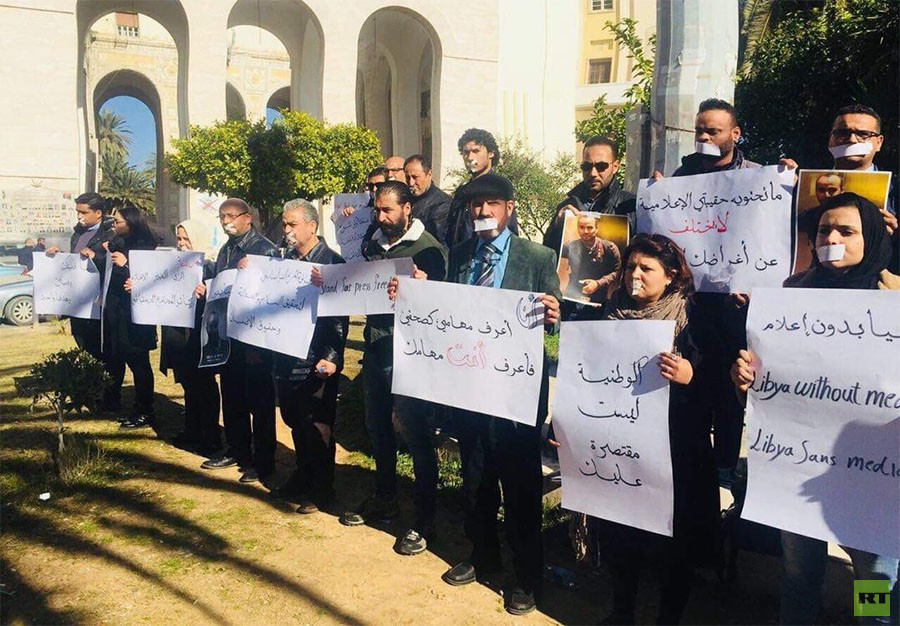On Saturday, January 19, 35-year-old Libyan journalist Mohammed Khalifa died in Tripoli. A photographer, cameraman and producer who collaborated with the video agency RT Ruptly was killed during one of the clashes between rival armed groups in the Libyan capital.
The journalist became a freelance employee of the video agency Ruptly in 2016 and for three years, repeatedly risking his own life, prepared dozens of stories about the situation in the country. Mohammed covered the civil war in Libya, being at the forefront of the fighting. Also, the stories of migrants who fled from the war and tried to cross the Mediterranean Sea on their way to Europe got into the lens of his camera.
Khalifa worked day and night. In particular, in July 2018, in pitch darkness, he filmed a video about how on the coast near Tajura rescuers removed more than 200 drowned migrants from the water.
Colleagues of the deceased journalist speak with great respect about his professional and personal qualities.
“Mohammed was a reliable, hard-working and modest person,” his colleague from Ruptly noted, adding that “they will miss his professionalism and good character.”
The deceased journalist left a wife and a half-year daughter.
- RT
“Journalism is not a crime”
On Sunday, January 20, dozens of people gathered on Algiers Square in the center of Tripoli to condemn the murder of Mohammed Khalifa. The protesters were holding photographs of the deceased and posters demanding an end to violence against journalists in Libya.
Here are some of the slogans written on self-made posters: “Supporting a free press is protecting our right to know the truth,” “Patriotism is not just for you,” “Beatings, insults, discrimination — that's how you treat me,” “I know my duties, you know yours, ”“ Libya without media. ”
“Journalism is not a crime,” reads an inscription on one of the posters.
- RT
Mohammed Khalifa became the 14th media officer who died in the country since the beginning of the Libyan conflict in 2011. According to the international non-governmental organization Committee to Protect Journalists (CPJ), most of them were killed in shootings.
The civil war in Libya has been going on since 2011, when after the events of the Arab spring the overthrow and murder of the long-term leader of the republic, Muammar Gaddafi, occurred. After that, the country actually broke up into several state formations under the control of various forces and groups. The conflict is exacerbated by a serious migration crisis.

